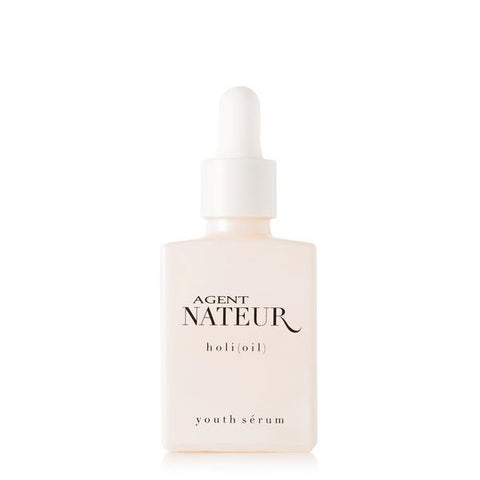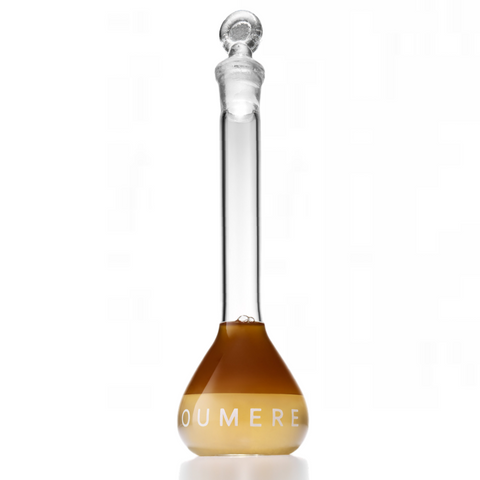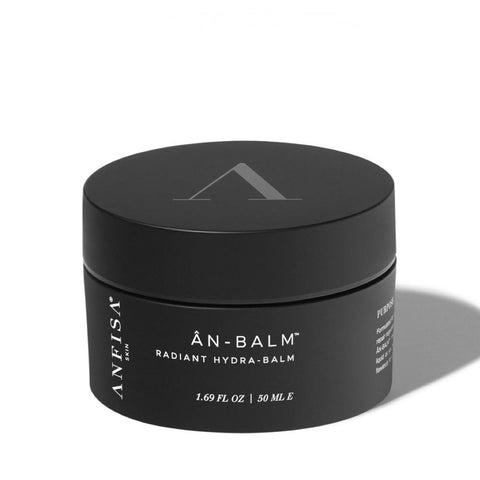Why Your Skin Needs Oil Just As Much As Water
November 07, 2023
We all know our skin needs water. Without enough water, the skin will get dehydrated, and then turn dull, with more noticeable fine lines, and perhaps even itchiness.
To tackle dehydration and dryness, hydrating serums are a good start. However, water alone is actually not enough, especially when you have sensitive, eczema or rosacea-prone skin.
What you need, is also a good quality oil-based serum. Remember, even if you don't like face oils, that doesn't mean your skin doesn't need it! Just like vegetables, even if you don't enjoy eating them, you still have to for the sake of health, right?!
And no, good quality face oils are not greasy, and do not clog pores and breakouts. In fact, all skin types can benefit from a face oil——you just have to choose the right one, and use it correctly. Here's why and how.
Let's pretend your skin is a water reservoir. If water in the skin is like the water in the reservoir, then oils are like the cement and building blocks of the dam, which prevent water from flowing out, while keeping contaminants, soil, and even insects and animals from going into the water.
Now, when the dam has holes in it, no matter how much water you pour into the reservoir, water will still keep flowing out, and soil and insects will keep contaminating the water, right? The skin is just the same.
When the skin lacks oil, the barrier becomes fragile with holes in it. This can be a result of genetics, eczema, rosacea, UV exposure, temperature fluctuations, hormonal imbalance, diet, stress, over-cleansing, cleansing with foaming cleansers and soap, using cleansing brushes or clothes, friction, using oil-controlling skincare products, and even aging. And when the barrier becomes fragile, it can no longer keep water in, no matter how much hydrating serums and masks you use, nor can it keep unwanted irritants, pollutants and bacteria out, which then leads to dryness, itchiness, sensitivity and even inflammations, such as acne, and rosacea and eczema flare ups.
In other words, while water is obviously important, to have hydrated and healthy skin, you first need oils to keep the skin barrier intact.
Not only dry and mature skin lack oil though! Congenitally oily skin also has a deteriorated barrier function, leaving it in an unprotected state. In an attempt to repair the barrier that is primarily made of lipids, the skin secretes excess sebum. Since the barrier is made up of oils, it is actually a misconception to say that giving the skin a lot of water can reduce oiliness.
Product Recommendation
AGENT NATEUR
holi(oil) Ageless Face Serum <- Click to shop
You may think face oils only give the skin lipids, but that is not the case! In fact, face oils contain hundreds of nutrients, including vitamins, minerals, antioxidants, polyphenols, proteins, carotenoids, anti-inflammatory and antibacterial properties, and many other phytonutrients that your skin can’t make itself, all of which are beneficial for skin health, as well as skin aging.
Here's the important part. Not all face oils are the same. Every single oil and botanical extract has a different nutrient profile, and when combined correctly, can work in synergy to provide multiplied benefits. Some face oils on the market contain one single type of oil, such as Rosehip Oil and Jojoba Oil (technically jojoba oil is not even an oil, but let's not get into it this time), making them more affordable, yet not as beneficial due to a limited profile of nutrients; whilst, others contain a combination of different oils, as well as other botanicals extracts and oil-soluble actives, making them much more efficacious thanks to a more balanced nutrient profile and synergistic effect of the different ingredients. In addition, a multi-oil formula in almost all cases tend to feel way lighter on the skin than a single-oil formula.
In addition to the combination and concentration of different oils used in a formula, the quality of the oils, where they are from, and how they are extracted and processed, are all extremely important in determining their nutrient profile and efficacy. Using culinary olive oil as an example, Lion & Globe’s pure olive oil only costs HK$69.90/1 liter, while the Italian Comincioli extra virgin olive oil costs as much as HK$840/1 liter! Here's another example. Wholesale per pound cost of Sesame Oil is around HK$80, whilst Prickly Pear Seed Oil is around HK$1,760, a whooping 22 times more! Why? Because their quality and benefits are just totally different.
Product Recommendation
OUMERE
Serum Bioluminelle™ <- Click to shop
You may think oils feel greasy and sit on top of the skin, but the truth is, they actually absorp much better than water-based serums.
First, we have to understand how the skin absorbs ingredients in skin care products——there are three pathways by which skincare ingredients can enter into skin.
| 1. Intercellular Absorption
Ingredients can absorb through the intercellular lipid material, or “glue” between cells, of the stratum corneum, which are made up of oil-based ceramides, cholesterol, cholesterol esters, and fatty acids. This essentially means water-based ingredients will be repelled since oil and water do not mix well, whilst face oils can penetrate and be absorbed much better.
| 2. Intracellular Absorption
The second route of absorption is through the dense, functionally dead cells of the stratum corneum. This is the route water-based ingredients can penetrate the skin. However, this layer of skin is 15 to 20 layers thick, which means only very tiny molecules can actually reach the deep layers of the skin this way.

| 3. Transappendageal Or Follicular Absorption
Pores and hair follicles are openings at the upper layers of the skin that reach down past into the dermis, which act like conduits between the lower and upper layers of the skin. However, as they make up only about 0.1% of total surface of skin, it is difficult for ingredients to enter the skin this way.
Face oils can go through the intercellular matrix or through the follicular route, unlike water-based ingredients that can only take the intracellular route. They also have a much smaller molecular size. This is exactly why face oils of any kind have a much higher chance of absorbing into skin versus water-based serums or moisturizers, and deliver a wide array of nutrients deep into the skin.
Product Recommendation
KLUR
Unseasonal Kind Lipid Replenishment Oil <- Click to shop
Face oils is a no-brainer for dry, sensitive, rosacea and eczema skin, but the truth is, even oily, acne-prone and oily skin can use face oils.
As mentioned above, congenitally oily skin also has a deteriorated barrier function, so in an attempt to repair the barrier that is primarily made of lipids, the skin secretes excess sebum. Thus adding in a face oil to help repair and maintain the skin barrier can actually help oily skin become less oily!
Furthermore, if the skin is oily due to dryness and dehydration, it can lead to a decrease in linoleic acid (omega-6) levels. As a result, the skin's natural sebum may have a higher proportion of oleic acid (omega-9), thereby exacerbating issues such as excessive oiliness, clogged pores, and acne. By balancing it with face oils high in linoleic acid, symptoms would ease!
In other words, the right combination of oils can actually help stabilize and regulate the skin's sebum production, which in turn, will help curb excessive oiliness. Some oils also have incredible soothing and anti-inflammation properties, making them great for acne-prone skin.
Product Recommendation
ANFISA
ÂN-BALM Radiant Hydra Balm <- Click to shop
For inflamed skin, such as acne, eczema and rosacea skin, a face oil is better than a moisturizer for in the sense that it doesn’t contain occlusives ingredients such as lanolin, shea butter, beeswax or mineral oil. These ingredients essentially create a physical layer on the skin to seal it off to prevent water loss, but they will also trap sweat, excess sebum, dirt, bacteria, allergens, etc. in the skin, and create an oxygen-free environment that bacteria love, and kill off ‘friendly’ bacteria that keep skin healthy, resulting in prolonged inflammations, irritations, clogged pores and acne.
In addition, many face oils contain soothing, anti-inflammatory, antibacterial and anti-irritation properties, so they will help soothe the skin and take down redness and inflammations much faster than moisturizers.
Product Recommendation
MARIE REYNOLDS LONDON
Elixir™ <- Click to shop
| Choose a Quality Face Oil with Targeted Benefits
There are many face oils on the market, and depending on the oils used and botanical extracts infused, as well as their respective concentration, they provide vastly different benefits. Therefore choose one that is formulated specifically for the face that targets your skin concern. Don’t choose a body oil for facial use, as it will likely be too heavy, and obviously, never use an oil used for cooking on your face. Also, rather than a single-oil formula, choose one that is formulated with multiple oils and botanical extracts for maximum skincare benefits.
As mentioned above, the number one determinant of the efficacy of a face oil is the type and quality of oils used, and good quality, nutrient-dense ones do cost more; and if top-notch botanical extracts and actives are included, then they can be expensive, but the benefits they provide are well worth it!
| Less is More
Oils are not diluted, and are very nutrient dense, so you really don’t need much to reap their benefits. In fact, too much will only leave the skin feeling greasy! Under most circumstances, 4-5 drops are enough for the whole face. So one bottle even used day and night everyday will last a long time!
| Best Ways to Use a Face Oil
There are actually many ways you can use a face oil in your routine, but here are the general rules:
- Apply face oil after your other serums and before moisturizer (or skip moisturizer completely).
- For better penetration, as well as a lighter skin feel, always apply on damp skin.
- You can spritz the skin with a mist or pat on some hydrating toner after your serum and before pressing on the face oil. You may also want to put on an extra layer of toner after the face oil, which can make it feel even lighter.
- Do not put it on after moisturizer, as the occlusive ingredients in it will create a physical barrier on the skin. The face oil won’t be able to penetrate this way and will just sit on top of the skin.
- While we do not recommend mixing face oils with moisturizers and foundation, to prevent foundation from cracking in the day from dryness especially during winter, you can warm up 2-3 drops of face oil with your finger tips, push it into the skin after your other serums (focusing around the cheeks), wait for a few minutes, lightly tissue off the excess, then finish up with your sunscreen, or a light hydrator / moisturizer then sunscreen, and use your makeup base and foundation as usual.
- For SOS dry and cracking circumstances, here’s a trick, which combines 2 techniques from dermatologists:
- Step 1: Cleanse;
- Step 2: Exfoliate (can be in the form of an acid cleanser, toner or serum);
- Step 3: Use toner, eye serum, serum(s), then a face oil (in a thicker layer than usual);
- Step 4: Soak a piece of paper mask (with packaging, drugstore ones are fine) in warm water and heat it up to 40℃. If you have rosacea or inflamed skin, put it in the fridge earlier instead;
- Step 5: Layer the paper mask on top of the toner, serum, and oil;
- Step 6: Remove the paper mask after the designated time period, then seal off with a moisturizer.
Also in The Journal

The Anti-Aging Gold Standard: How Retinol Reshapes The Skin
November 12, 2025
Learn why retinol is the gold standard for anti-aging, how it works, what similar ingredients exist, and some common myths and misconceptions.

The Gut-Skin Connection: The Path to Healthy Skin
October 26, 2025
Acne, eczema, rosacea, and sensitivity can all be linked to the gut health, and even gluten? Learn all about the connection between the gut and the skin.

The Secret to Reversing Skin Aging! How Growth Factors & Peptides Help Turn Back the Clock
October 13, 2025
Tired of wrinkles, sagging skin, lack of elasticity, inflammation, dryness, and even hair loss? Learn how growth factors and peptides reverse skin aging.
+Recent Articles
-
The Anti-Aging Gold Standard: How Retinol Reshapes The Skin
November 12, 2025
-
The Gut-Skin Connection: The Path to Healthy Skin
October 26, 2025
-
The Secret to Reversing Skin Aging! How Growth Factors & Peptides Help Turn Back the Clock
October 13, 2025
-
The Best Ways and Times to Take Different Supplements
August 19, 2025
-
Luxury vs. Budget-Friendly Skincare Products——What Are Their Differences?
August 06, 2025
-
How to Prevent and Improve Post-Inflammatory Hyperpigmentation (PIH)
July 10, 2025
-
How to Prevent and Improve Post-Inflammatory Erythema (PIE)
July 08, 2025
-
The Ultimate Cleansing Guide to Improve Skin Conditions
June 03, 2025
-
Do You Have Sugar Face? How Does Sugar Affect Our Skin and Appearance?
May 20, 2025
-
Do You Have Gluten Face? How Does Gluten Affect Our Skin and Appearance?
April 15, 2025
Subscribe to get skincare knowledge delivered to your inbox!








